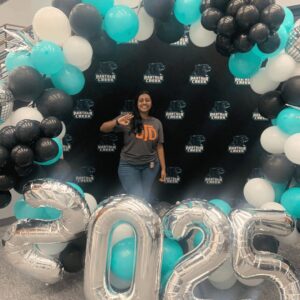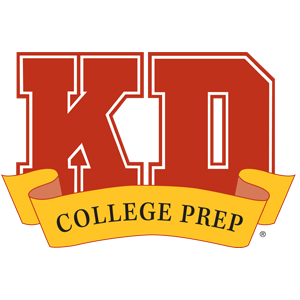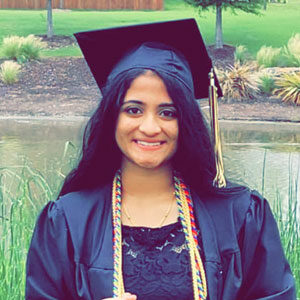Choosing where to go to college is a major decision. You’ll need to decide not only which school suits your career goals and other interests, but also where you’ll feel comfortable living for four years (or longer if you attend grad school there). College visits are essential for the decision-making process. Visiting the schools on your shortlist will help you determine which one is best for you.
Plus, attending an information session and interviewing with an admissions officer during your visits are excellent ways of demonstrating your interest to the school, which may benefit your admissions chances. Use the following college visit checklist to plan your trip and get the most out of it.
Things To Do Before A College Visit
1. Do a little research on colleges of interest
The first item on your college visit checklist is to research some schools of interest. If you haven’t already, you’ll need to put together a shortlist of about five to 10 schools that you think you might like to attend and that would support your career goals. Explore their websites, review any promotional materials they send you, and talk to your high school guidance counselor about your options.
2. Choose which colleges to visit
You might not visit every college on your shortlist, especially if that list is longer. First, talk to your parents about college visits. How many visits will they be able to accommodate? What are their geographic restrictions, if any? Do you need to limit your visits to schools within driving range or is a flight or two possible? Once you know what your parameters are, you can decide which campuses to prioritize.
3. Sign up for official tours
Now that you know which campuses you’re aiming to visit, the next item on your college visit checklist is to decide when you’ll be able to get to each. Depending on geography and your school schedule, it may make sense to cluster a couple of campus visits together into one long weekend. After planning the travel logistics with your parents, visit the school websites and sign up for official tours on those dates. It’s also a good idea to reach out to the admissions offices and ask about scheduling interviews on those dates.
4. Write a list of questions
Next, develop a list of questions to ask on your college tours and during your interviews. You might want to ask about academics and specific departments, extracurriculars, campus life, and admissions. For a list of good questions to ask, check out this blog.
5. Research the town
Your campus will be your home away from home for four years, so it’s important to make sure you’ll be happy there. However, you’ll definitely want to venture off campus, as well, so spend some time researching the town ahead of your visit. You’ll want to explore points of interest, do some touristy things, and check out the local restaurants. You’ll also want to know if there’s a supermarket close to campus, nearby healthcare (hospitals and pharmacies), convenient transportation (train station, subway, bus, airports, etc.), and, if you have a car, a mechanic close to campus.
What to Do During Your College Visit
6. Dress in office casual attire
If you have an interview on campus, you should wear or bring business casual clothing, such as a shirt and tie with slacks or a skirt and blouse. Otherwise, you can dress a little more informally. Khaki pants and a polo shirt or a sundress are both appropriate outfits. Try not to dress too casually and avoid showing too much skin.
7. Take the official tour
Although it’s also a good idea to wander around on your own, you should also plan on taking the official tour. Your tour guide will almost certainly be a current student. They will show you all of the major points of interest, such as a dormitory, academic building, library, student center, and dining halls.
Do note that the official tour will likely not include older or outdated parts of campus; the college wants to put their best foot forward, just as you do. It may also not include all of the parts of the campus that you want to see, such as the academic building for your intended major, sports facilities, and so on. You can explore those areas after the official tour.
8. Pay attention to where the students are
As long as you aren’t visiting the campus during the summer or another school break, there should be plenty of college students roaming around. Making a note of where the students are can tell you a lot about the campus culture. If the library is jam-packed, for example, it’s a safe bet that the school prioritizes academics. Similarly, seeing a lot of students relaxing in the sunshine on the quad could indicate that the school is relatively laid back.
9. Explore the campus beyond the tour
You’ll definitely want to check out as much of the campus as you have time for. This is not the best time to rush things; take your time strolling around and soak up the atmosphere. Don’t forget to take plenty of notes about your first impressions. In addition, take pictures of points of interest to refresh your memory later. You should also take pictures of yourself smiling in front of various buildings or other features (see the section on social media below).
10. Talk to lots of people, not just your tour guide
Your official tour guide will give you the company line, so to speak. While that can be helpful, it’s also a good idea to talk to other people around campus to get the less polished view of the school. Try to talk to students, sports team members, club members, and so on.
11. Explore your intended major
If you already know what you want to major in, you should definitely take the time to explore that particular academic building. The condition of the building itself, its available technology, and its size can give you a clue as to how much that major is valued at that school and what sort of resources/programs you might have available to you.
12. Check the school bulletin boards
You’ll likely find bulletin boards scattered around, particularly in the student center. Snap some pictures to look at later. The notices posted there can give you a clue about the social, political, or religious pulse of the campus community.
13. Check the classrooms
Colleges generally have a mix of large lecture halls and smaller classrooms, perhaps set up conference room-style. Does the school tend to have tons of lecture halls and few smaller classrooms that support greater interaction? That can tell you something about the academics there. Similarly, make a note of the technology available in the classrooms.
14. Check the dorms that aren’t on the tour
The tour guide will show you the newest, snazziest-looking dorm on campus. Ask if you can see one of the older ones to get a sense of where you might actually be living if you don’t land a spot in a newer dorm.
15. Be respectful to others
This goes without saying, but it’s definitely important to be on your best behavior while on your college visit. Treat others as you would want to be treated.
16. Keep a record of your visit
You’ll want to take plenty of notes and snap lots of pictures during each of your college visits. This will help jog your memory later as you spend some time reflecting on your first impressions of the schools.
17. Read a student newspaper
Student newspapers can give you a clue as to the pulse of the school community. Is there a vibrant arts scene? Are there regular activities and events? Do the other students seem engaged in campus life?
18. Try the food in the cafeteria
This item on your to-do list will be especially important if you have any food allergies or sensitivities. If so, make an effort to speak to a few of the cafeteria workers about the menu and whether there are plenty of choices available to you.
19. Visit the bookstore
The campus bookstore will be where you’ll purchase your textbooks along with any other classroom supplies you may need. Does it appear well-stocked? Are workers readily available to help students if they need it?
20. Look into clubs and organizations
On-campus clubs and other activities are the lifeblood of a school’s social scene. Does the school offer a bunch that look interesting to you? Can you attend a club activity while you’re there?
21. Ask about job opportunities for students
Higher education institutions customarily offer student employment opportunities. This may be available as part of a financial aid package. Although you won’t be applying just yet, it never hurts to find out what sort of opportunities could be available to you. Consider asking your tour guide which jobs are the most popular, and therefore, the hardest to get.
22. Find the library and ask about its resources
Although it might seem inconceivable, not everything is findable on Google. A robust campus library will be essential for your success in college. Take plenty of time to explore the library and don’t hesitate to chat with a librarian about its resources. Is there a media room? Does it offer archives and special collections? Are there small meeting rooms available for student study groups?
What to Do After Your College Visit
23. Reflect on your visit and adjust your shortlist accordingly
Your college visit checklist isn’t quite complete yet! There are also some steps you should take after your visit. Spend some time thinking about the experience. What did you like and dislike about the school? Do you have any concerns or follow-up questions? Consider whether you should rank the school higher on your shortlist or perhaps downgrade or eliminate it.
24. Send thank you notes
Even if you aren’t sure whether the school is the right one for you, it’s always a good idea to send thank you notes. Send a thank you email or written note to the admissions officers and other reps you may have met. This will help you make a good impression and it’s always nice to be polite.
25. Reach out with follow-up questions
If you do have any follow-up questions, you can include them in your thank you emails to the admissions officers. Even if you didn’t meet with an admissions officer during the visit, you can send a quick, polite email to the office with your questions. Mention that you recently visited the school and then type a brief list of questions.
26. Post college visit pics to your social media, if applicable
You might already know that hiring managers often check job applicants’ social media profiles before deciding whether to extend a job offer. But did you know that admissions officers might do this, as well? It may be beneficial for you to post happy pictures of you on campus and mention how much you enjoyed the experience. This demonstrates your interest in the school—admissions staff like to see applicants who engage with the school.
Why is it important to plan a campus visit?
It’s hard to know if you’ll like a car enough to buy it before you test drive it. College campus visits are similar. They serve as a test drive, allowing you to get a feel for the vibe of the campus and the rigor of the academics. Up to this point in your life, choosing a college will be one of the most significant decisions you’ll make. It’s important to be happy with your choice.
Are college tours worth it?
Our experts have worked with thousands of college-bound students over the years. Many of them have mentioned that campus visits played a major role in their decision. College tours are absolutely worth the time and expense because you’ll be able to make a decision more confidently.
What should you bring to a college visit?
You don’t need to pack as if you’re going on a week-long hiking excursion, but you should bring a few items to help you get the most out of the experience. You’ll want your phone (to take pictures), a notepad and a couple of pens (to take notes), and a prepared list of questions and places that you’d like to visit. If you’ll be doing an interview on campus, remember to dress appropriately. (And don’t forget to bring a copy of this college visit checklist so you get the most out of your campus trip.)
What month is best for college visits?
There’s no universal right or wrong answer. However, it’s often preferable to visit during a semester so that you can get a sense of what the campus is like when all of the students are there. Additionally, if you’re from a warm climate, visiting a cold climate school during the winter can be a good way to gauge whether you can handle the cold weather. However, if you’re unable to visit during a semester, take advantage of spring break or summer vacation to plan your college visits. Be sure to check for available tours before making any plans.
What should you not ask on a college tour?
There really aren’t any dumb questions. However, you should research the school thoroughly online first. Try to avoid asking questions that can be easily answered with a little online research. In addition, it’s best not to ask your tour guide personal questions or to request special favors.
What can I expect on a college visit?
College visits generally include structured and unstructured components. You’ll almost always have an information session and a campus tour, and perhaps an interview. At some colleges, you may also be able to arrange to attend a class, club meeting, or sports practice, or meet with a professor. You’ll also have some unscheduled time, during which you can explore the campus on your own and check out the surrounding community.
Need help preparing for college?
At KD College Prep, our mission is to help students get into the colleges of their dreams through test prep programs (including online learning options) and college counseling services. Schedule a free consultation to get started. We can’t wait to learn more about your goals!














































